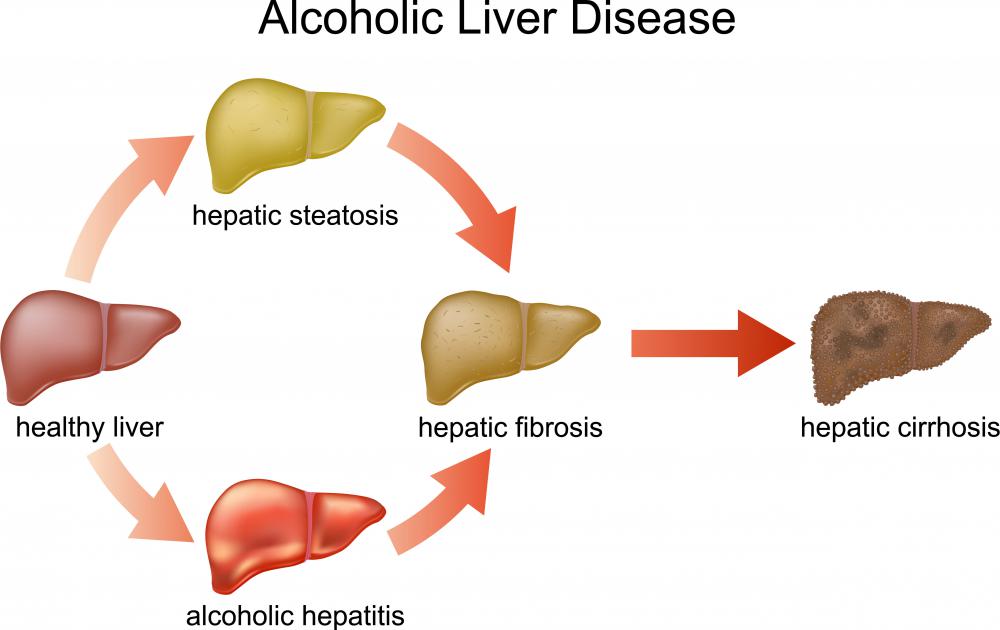At WiseGEEK, we're committed to delivering accurate, trustworthy information. Our expert-authored content is rigorously fact-checked and sourced from credible authorities. Discover how we uphold the highest standards in providing you with reliable knowledge.
How Effective Is Rifaximin for Hepatic Encephalopathy?
Rifaximin for hepatic encephalopathy has proven to be an effective measure for treatment, which is why medical professionals prescribe this antibiotic in response to this liver condition. Rifaximin is a unique antibiotic in that very little is absorbed through the intestines if ingested, meaning that low concentrations end up in the bloodstream. This nonsystemic characteristic is not common among antibiotics, categorizing rifaximin in a class known as rifamycin-based, nonsystemic antibiotics.
While rifaximin for hepatic encephalopathy is one treatment for this potentially life-threatening disease, the other most commonly used method is lactulose. Both are geared toward preventing the release of toxins in the intestines. Rifaximin is not strictly used for this, however, and doctors also prescribe it for traveler's diarrhea and other conditions resulting from bacteria.

Hepatic encephalopathy is defined as the occurrence of confusion, loss of consciousness, coma, or other states of compromised awareness as a result of liver failure. This failure may be brought about by a variety of causes. When the liver fails, toxic substances that would normally be removed from the body instead continue to increase in concentration in the bloodstream. These toxins then travel throughout the body via the circulatory system, causing inflammation in other organs. This inflammation, in many cases, impairs their function, leading to the symptoms of hepatic encephalopathy, including the potential for death.

The best way to treat this disorder is to attack the factors that cause it. This is how rifaximin for hepatic encephalopathy is effective. If bacteria is the culprit for liver failure, the use of rifaximin for hepatic encephalopathy may result in its reduction and a reversal of the cause. If prescribed and used properly, it may work to cure the condition.
If the source of heptic encephalopathy, however, is not bacterial in nature, then rifximin for hepatic encephalopathy will not be effective. Although bacteria is a very common cause of this condition, there are also many other possible sources to be considered. For this reason, rifaximin for hepatic encephalopathy is not the only treatment prescribed.
There are, of course, adverse effects that may potentially present themselves when using rifaximin for hepatic encephalopathy. No substance has just one effect on the body, and doctors and patients should take the potential for harm into consideration before use. The best way to evaluate whether or not a patient should be taking the drug is to consult with a medical provider.
AS FEATURED ON:
AS FEATURED ON:












Discuss this Article
Post your comments